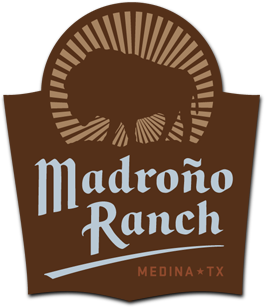Meat-eating has been the topic of much discussion recently, at least in what I’ve been reading. Jonathan Safran Foer’s new book, Eating Animals, has generated a significant buzz; if you Google “foer eating animals,” you get 961,000 results. Foer spent three years investigating meat production in the United States, factory farming in particular. Although he himself is a vegan, he says that he has no interest in converting anyone to veganocity; he just wants people to think about where their food—specifically, their meat—comes from.
Although I haven’t come to his vegan, or even vegetarian, conclusions, I think Foer is right. (Ahem. I haven’t read the book.) In my previous post on carnivorocity (a word my spell-check still doesn’t like), I wrote very convincingly about the ethical precondition necessary for meat eating, to wit: awareness of and gratitude for the sacrifice required to satisfy the appetite of the meat-eater, awareness that demands, for those who are to be sacrificed, a life of comfort in the world to which they are adapted. In fact, I think this awareness needs to be extended to vegetables as well; after all, even vegans require sacrifice—it’s just not as messy. By the very act of eating, all creatures—including, most emphatically, humans—participate in the circle of sacrifice, and a circle it most assuredly is; in nature, there is no such thing as a free lunch.
What sacrifice, then, is demanded of us? This year’s edition of The Best American Essays, edited by Mary Oliver, includes an essay by Wendell Berry entitled “Faustian Economics,” originally published in Harper’s Magazine. In it, Berry rails against the American propensity to confuse personal freedom with unlimited consumption, a fantasy that perhaps arose due to the intersection of the Industrial Revolution with the discovery of vast natural resources in the American West. As a nation, we’re confronting the end of this fantasy and “entering a time of inescapable limits”—an opportunity, according to Berry, to become reacquainted with traditional definitions of humanness. By their very nature, humans are, well, natural, and therefore limited. What distinguishes us from other animals (although I think this topic is being hotly debated) is our capacity for self-limitation, self-restraint, particularly as it is “implied in neighborliness, stewardship, thrift, temperance, generosity, care, kindness, friendship, loyalty, and love.”
As long as we base our identity on limitlessness, we deny an essential—and liberating—element of our humanity. As long as we base that fundamentally human activity, commerce, on fantasies of limitlessness, it will be inhuman and inhumane, what Berry calls an “economy of community destruction.” Instead, he would have us cultivate a mindfulness of human limits—agricultural, economic, medical, technological, scientific—in order to reclaim “the knowledge that some things, though limited, are inexhaustible.” He cites intact ecosystems like working forests and farms that give inexhaustibly, given the practice of human self-restraint. He compares this practice to the willing submission of artists to the constraints of their art forms—the poet to the sonnet, the painter to the canvas. The work that arises from this sort of discipline has the capacity to feed us inexhaustibly, a capacity we’ve all experienced when revisiting favorite novels or symphonies or buildings.
The title of Berry’s essay comes from Christopher Marlowe’s Tragical History of Doctor Faustus, first published in 1604, in which Faustus (that’s him in the picture above) sells his soul to Lucifer in exchange for knowledge and power. What Faustus learns—or, more accurately, refuses to learn—is that the human mind and soul are and ought to be subject to limits. When creatures refuse to acknowledge limits, hell is born.
So how do we practice the self-restraint necessary to maintain our humanity? Some, like Foer, argue that abstaining from eating meat is a logical and reasonable sacrifice. I don’t disagree with him, but I don’t think there’s a single way to humane self-restraint. Many indigenous cultures have focused on—even worshipped—the animals that fed them, Native Americans and bisons being a case in point.
I’m not sure any of this will mean much to those people and businesses that value scale and efficiency over humanness. Nor will it mean much to most Americans accustomed to the availability of cheap meat at every meal. But, with Berry, I believe that our humanity is at stake in the choices we make when we eat. When we choose to abet the suffering of animals and ecosystems to feed ourselves, we whittle away at our own humanness. When we choose to limit our choices, we paradoxically open ourselves to the possibility of inexhaustible plenty.
Sounds like a deal to me.
What we’re reading
Heather: Sylvia A. Earle, The World Is Blue: How Our Fate and the Ocean’s Are One
Martin: Colum McCann, Let the Great World Spin


Check out this informative and inspiring video on why people choose vegan: http://veganvideo.org/
Also see Gary Yourofsky: http://www.youtube.com/watch?v=bagt5L9wXGo
A Holiday Thought…
Aren’t humans amazing Animals? They kill wildlife – birds, deer, all kinds of cats, coyotes, beavers, groundhogs, mice and foxes by the million in order to protect their domestic animals and their feed.
Then they kill domestic animals by the billion and eat them. This in turn kills people by the million, because eating all those animals leads to degenerative – and fatal – – health conditions like heart disease, stroke, kidney disease, and cancer.
So then humans spend billions of dollars torturing and killing millions of more animals to look for cures for these diseases.
Elsewhere, millions of other human beings are being killed by hunger and malnutrition because food they could eat is being used to fatten domestic animals.
Meanwhile, few people recognize the absurdity of humans, who kill so easily and violently, and once a year send out cards praying for "Peace on Earth."
~Revised Preface to Old MacDonald’s Factory Farm by C. David Coates~